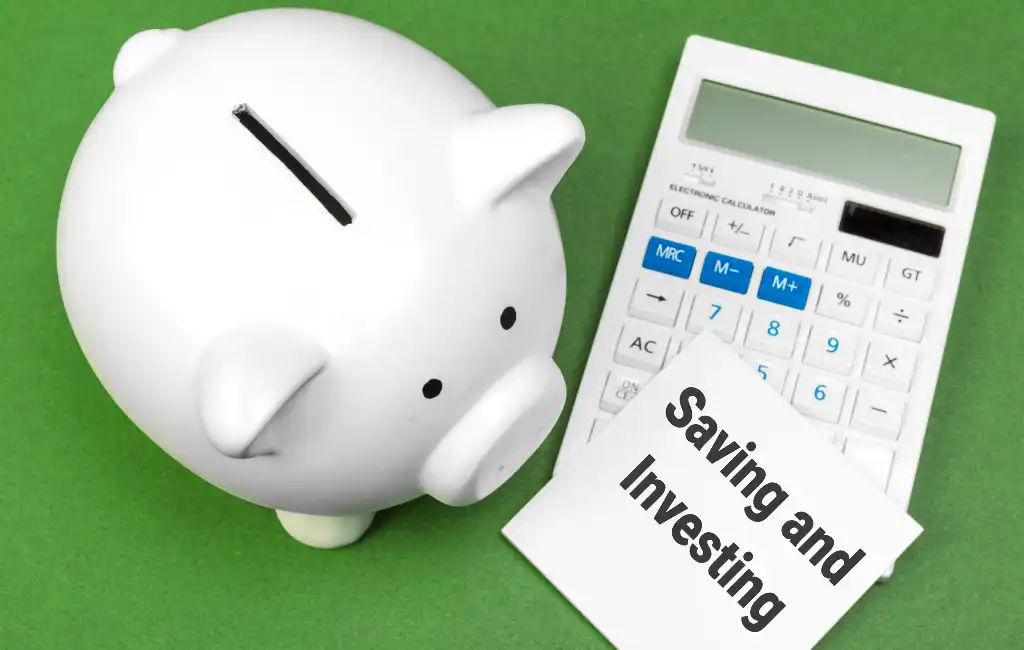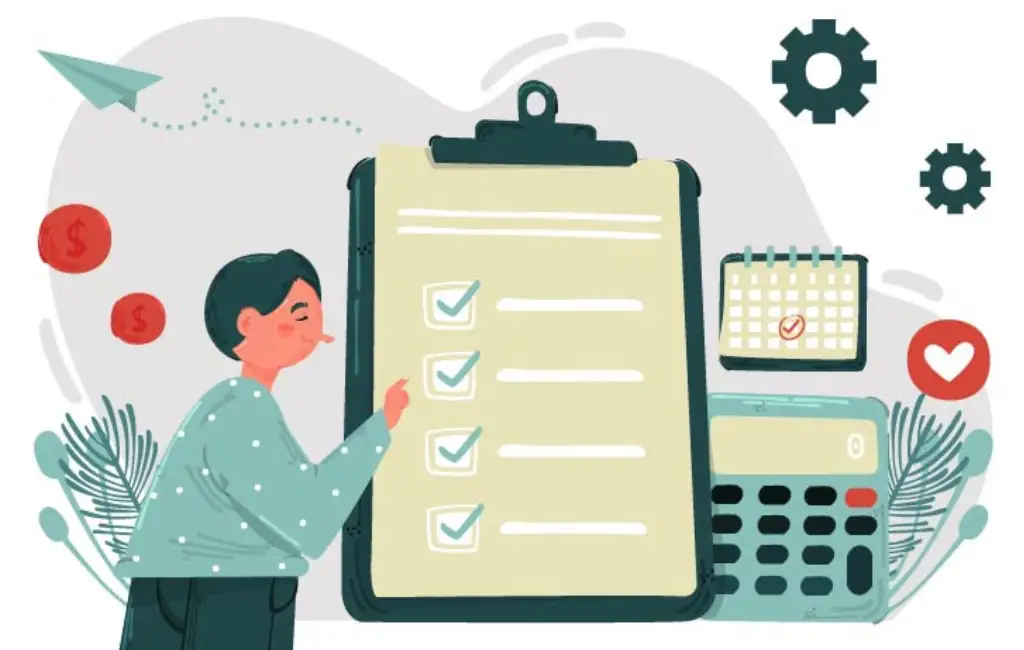As the curtain rises on the stage of adulthood, a new realm of responsibilities emerges, one that demands attention, foresight, and a steady hand at the helm. Arguably, the most influential among these responsibilities is the management of personal finances, a task that often presents itself as a labyrinth of complexity and uncertainty. Yet, it need not be so daunting; equipped with the right strategies, the path toward financial security can transform from an intimidating obstacle course into a navigable roadmap.

This journey toward mastering the financial realm is both essential and empowering. It grants you the liberty to make life choices without the constant constraint of financial limitations. We present this comprehensive guide with 17 actionable budgeting tips for young adults to aid you in this quest. Each tip is designed to equip you with the knowledge and tools to consciously, deliberately, and successfully sculpt your financial future.
This guide aims to demystify the world of personal finance and budgeting. We believe that with a little guidance and a few strategic changes, anyone can take control of their finances and build a stable, secure future. Let’s work together, taking things one step at a time, to improve our financial knowledge and gain the many benefits it provides.
Why Young Adults Should Budget
Young adults are often at a crossroads of financial decisions, from furthering their education and beginning a career to moving out of their parent’s house. Budgeting can help keep track of their earnings and spending, ensuring they live within their means. It also promotes a sense of financial responsibility, which is essential in dealing with unexpected expenses and future financial planning.

Understanding the importance of budgeting is crucial for young adults as they start their financial journey. It helps manage income, control spending, and plan for the future. Having a budget in place encourages financial responsibility and aids in achieving financial independence.
Moreover, budgeting also allows young adults to establish good financial habits early. Saving money can help avoid debt and prepare for unexpected costs. When young adults start budgeting early, they are better equipped to deal with more complex financial decisions in the future.
Understanding Personal Finances
Before beginning to budget, young adults must understand their finances. Knowing what funds are available and how they can be used is essential. As a young adult, understanding personal finance includes knowing your income sources, recognizing necessary expenses, understanding tax obligations, setting personal financial goals, and making informed decisions about saving and investing.
Young adults can make better financial decisions by gaining comprehensive knowledge of personal finance, which includes earning, spending, saving, and investing. Understanding where income is coming from, how and where money is being spent, and planning for future expenses are all part of managing personal finances.
Young adults should also understand the importance of maintaining a good credit score, understanding tax obligations, and protecting themselves against financial risks. Learning about these elements of personal finance will provide a solid foundation for managing money effectively and ensuring financial well-being.
Building a Realistic Budget
Once young adults have a keen understanding of their finances, they can begin to create a budget. A budget should be tailored to the individual’s unique financial needs and goals. A realistic budget considers all your income and expenses, has clear and attainable goals, and allows flexibility. It should also include a plan for emergency expenses, such as unexpected car or home repairs.
The initial step towards managing your money effectively is to create a budget based on realistic figures. It involves evaluating income sources, determining necessary expenses, and setting financial goals. A budget should be flexible enough to adapt to changing circumstances while still ensuring that savings and spending are balanced.
It’s important to factor in regular monthly expenses and occasional or unexpected costs. A realistic budget should consider all aspects of your financial life and provide a clear roadmap to achieve your goals.

Effective Budgeting Strategies
Understanding and effectively managing finances are critical skills for young adults. This transition into financial independence can be quite daunting. To make budgeting easier and more successful, try implementing these helpful strategies.
The 50/30/20 Rule
This basic budgeting rule involves allocating your income in a specific way. The rule proposes that you allocate 50% of your income to necessities like rent and groceries, 30% to discretionary expenses like entertainment, and 20% to savings and debt repayment. This strategy helps maintain a balanced budget without overspending in any category.
Zero-Based Budgeting
This budgeting method requires you to assign every dollar you earn to a specific purpose, ensuring your income minus your outgo equals zero by the end of the month. By knowing exactly where each dollar goes, you can avoid unnecessary spending and save more effectively.

Envelope System
In this system, you allocate a specific amount of cash for different spending categories and put it into separate envelopes. If you run out of cash in an envelope assigned for a certain category, you should not spend any more money on that category for the rest of the month. This physical separation of cash helps to control overspending.
Automate Your Savings
Automating your savings ensures a portion of your income automatically goes to your savings account each month. This eliminates the temptation to spend money earmarked for savings and helps you consistently build your savings over time.
Pay Yourself First
Putting yourself first when it comes to spending and saving is essential. Paying yourself first means prioritizing saving and debt repayment before all other expenses. Once you have paid yourself, you can allocate your money for other expenses and discretionary items.
Managing Debt and Credit
Debt is a reality for many young adults. It is vital to comprehend efficient debt management, maintain a positive credit score, and avoid the pitfalls of debt.
Managing debt and credit is crucial when it comes to personal finance.
When used wisely, credit can be a valuable tool – it can help manage cash flow, build credit history, and even provide rewards or cash back. However, misuse of credit, especially credit cards, can lead to mounting debts and financial stress.
Therefore, it’s essential to understand the cost of borrowing, make timely payments, and avoid unnecessary debts. You should also strive to maintain a healthy credit score by only taking on debt you can afford and always making payments on time.

Saving and Investing
Young adults should prioritize saving a portion of their income and consider investing in growing their wealth. Savings can provide a safety net in an emergency while investing can offer higher returns over the long term.
Saving and investing are vital components of a sound financial plan. Young adults should aim to save a portion of their income regularly, irrespective of the amount. This not only helps in accumulating a corpus for future needs but also instills a habit of saving.
On the contrary, investing means using your money to earn more money. Some good budgeting tips for young adults can help them to start investing in different sectors like stocks, bonds and mutual funds even with a small amount of money.. Understanding the basics of investing, the associated risks, and potential returns can help young adults make informed decisions and grow their wealth.
Long-Term Financial Planning
Long-term financial planning involves setting financial goals for the future, such as buying a house or retiring comfortably. To achieve financial success, you need to know your financial situation, set achievable goals, create a plan to reach these goals, and regularly check and modify the plan if needed.
Long-term financial planning involves setting and working towards financial goals like buying a house, retirement planning, or building a college fund. Starting to plan early is crucial because it allows more time for savings to build up and increase.
Long-term planning also involves understanding and managing financial risks. This includes getting the right insurance coverage and creating an emergency fund. By starting early and staying consistent, young adults can achieve their long-term financial goals and ensure financial security for themselves and their families.
17 Actionable Budgeting Tips for Young Adults

Entering adulthood brings along a wide array of responsibilities, not the least of which is managing finances. It’s a task that can seem daunting, but with the right skills, young adults can navigate their way to financial security. This blog post provides 17 actionable budgeting tips for young adults that are practical and easy to implement.
1. Track Your Expenses
The first step in managing your money effectively is understanding where it goes. Tracking your expenses allows you to identify spending patterns, pinpoint areas to cut back, and prioritize where you spend your money. Many apps are available to help with this task, or alternatively, you can use a traditional spreadsheet.
2. Set Realistic Goals
Financial goals provide direction and purpose for your money management efforts. Whether it’s saving for a car, paying off student loans, or building an emergency fund, set goals that are specific, measurable, achievable, relevant, and time-bound (SMART).
3. Create a Budget
Creating a budget is the basis of good funds management. Based on your income, set limits for different spending categories like food, rent, entertainment, etc. Ensure your budget includes necessary expenses, savings, and some room for fun.
4. Stick to Your Budget

Make sure you’re able to follow through on the limits you set for yourself and make any necessary adjustments if your needs change. It requires discipline and commitment. However, it’s alright if you occasionally go off the plan. What’s required is that you do not go off the plan too often.
5. Save Before You Spend
Set aside a substantial portion of your earnings to save before incurring expenses. This will help you meet long-term financial goals and provide a buffer in an emergency. Automating your savings is a useful way to ensure you do not overlook savings.
6. Pay Yourself First
Similar to “Save Before You Spend,” the concept of paying yourself first means prioritizing saving and investing for your future ahead of paying bills. It’s an easy concept, yet many people don’t put it into practice. Paying yourself first doesn’t necessarily mean allocating a large portion of your paycheck to savings, but it does mean making sure you’re saving a certain amount each month. It can be as little as 10% or even just $50 per paycheck.
7. Use the 50/30/20 Rule
The 50/30/20 rule is a good guideline for budgeting. It suggests that 50% of your income should go towards essentials like rent, food, and bills. 30% should go towards discretionary items such as entertainment and travel. The last 20% should be put towards savings or investments.
8. Minimize Debt
Debt can be a significant obstacle to financial success. Try to minimize your debt by paying off high-interest loans and credit card bills first. Seek out low-interest options whenever possible, and avoid taking on additional debt.
9. Understand Your Taxes
Familiarize yourself with the tax system and ensure you take advantage of available deductions. This can help minimize your tax liability, freeing up more money for other uses. It also pays to stay up-to-date with any changes in the tax code.
10. Establish an Emergency Fund
An emergency fund is a safety net. It protects you from financial hardships in unexpected medical emergencies or job loss. It is recommended to save at least three to six months’ worth of living expenses in your emergency fund.
11. Automate Your Savings
Setting up an automatic savings plan is a great way to ensure you don’t forget about saving. Have a set amount of your income automatically transferred into a savings account each month. This way, you won’t be tempted to use it for anything else.
12. Use Credit Wisely
Using credit can help build a good credit score, which is important for accessing financial products in the future. Consider setting up automatic payments to ensure bills are paid on time and always pay more than the minimum amount due. With responsible use, credit can be a powerful tool. However, misuse can lead to debt and negatively impact your credit score.
13. Invest in Your Future
Thanks to the power of compound interest, investing can help your money grow over time. Search for investment opportunities matching your risk tolerance and long-term financial aims.
14. Learn About Investing
Investing can be a significant part of wealth accumulation. Begin with understanding the basics, like stocks, bonds, and mutual funds, then gradually move on to more complex investment strategies.
15. Avoid Impulse Buying
Impulse buying can quickly derail your budget. Avoid making unplanned purchases by sticking to your shopping list, waiting a day or two before making significant purchases, and questioning whether you need the item.
16. Regularly Review Your Budget
Your budget should be dynamic, changing as your income, expenses, and goals change. Make sure to review and adjust your budget regularly to ensure it accurately reflects your current financial situation.
17. Educate Yourself
Knowledge is power, and this is particularly true for financial management. Take the time to educate yourself about personal finance, budgeting, investing, and taxes. There are numerous online resources, books, podcasts, and courses available that can help you enhance your financial literacy.

Frequently Asked Question (FAQ)
How do I choose a good financial advisor?
Choosing a financial advisor depends on your financial goals, the type of advice you need, and the advisor’s qualifications. Look for someone with relevant experience, good credentials, and a fiduciary duty to prioritize your interests.
Why is compound interest so powerful?
Compound interest is powerful because it allows your interest to earn interest, leading to the exponential growth of your money over time. This makes it a crucial element in investment and retirement savings strategies.
What is the best budget rule?
The best budget rule varies depending on individual circumstances. However, the 50/30/20 rule is often recommended for its simplicity and balance.
How much should you have in your 20s?
There’s no definitive answer, as it depends on numerous factors like income, debt, and personal goals. However, a common recommendation is to save at least your annual salary by age 30.
What should my net worth be at 25?
Net worth at 25 varies greatly depending on education, debt, income, and savings. However, a positive net worth – your assets exceed your debts – is a good start.
Conclusion
Financial literacy is a crucial life skill for young adults beginning their independent financial journeys. The earlier you understand and implement these “Budgeting Tips for Young Adults,” the better equipped you’ll be to navigate financial challenges and opportunities that come your way. Remember, budgeting is not restrictive; instead, it’s a tool that promotes financial freedom and stability.
At EduCounting, we help young adults gain financial literacy and build strong money management skills. We wish you all the best with your financial journey!









